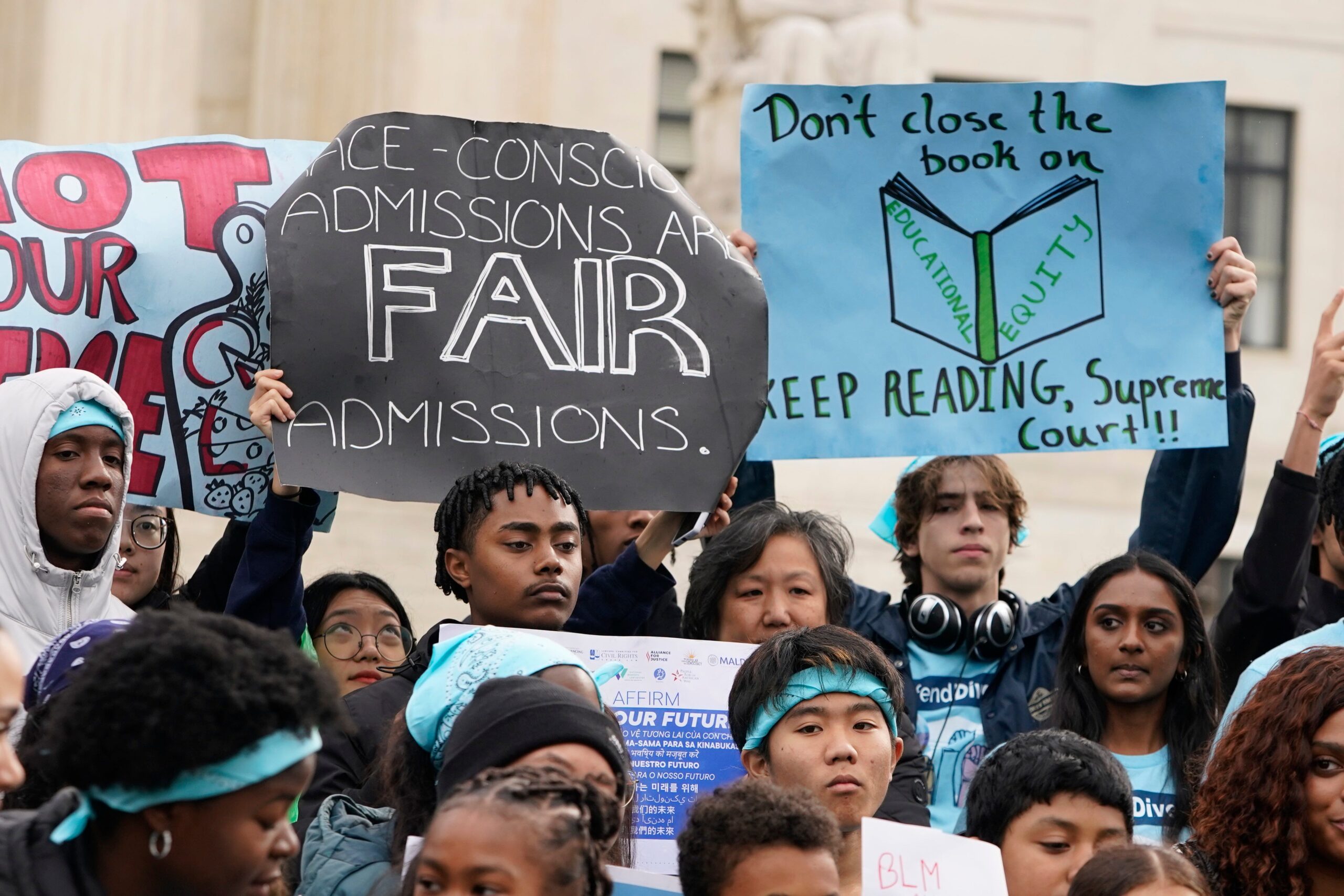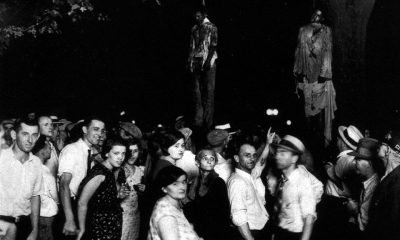States
Supreme Court Decision Sparks Debate On Race-conscious Admissions Policies

Sparks Debate On Race-conscious Admissions Policies:
The U.S. Supreme Court knocked down race-conscious college and university admissions procedures, sparking disputes over racism and Black representation in higher education. This verdict breaks with tradition and has far-reaching repercussions outside academia.
Impact On Educational Diversity And Racial Justice
The recent Supreme Court ruling, sometimes confused with affirmative action, has raised concerns about its potential to undermine efforts to establish racially diverse schools. Race-conscious admissions rules have helped correct past injustices and promote higher education fairness for decades. These measures have sought to empower disadvantaged groups like Black pupils, who have suffered systematic impediments.
The Court might undercut diversity and racism efforts in schools by overturning these regulations. The ruling may prolong racial inequality, especially for Black students, who are underrepresented in higher education. The verdict casts doubt on racial fairness and institutional racism in America by ignoring race-conscious admissions.
Legislative And Legal Maneuvers: A Wider Assault On Anti-racism Efforts
The Students for Fair Admissions lawsuits against Harvard University and UNC are part of the nationwide fight against affirmative action and racism. Florida’s Stop WOKE Act limits public college debates on racism and sexism, while Texas’s Senate Bill 17 restricts diversity, equality, and inclusion programs.
In conjunction with the Supreme Court’s ruling, these legislative and judicial steps suggest that white supremacy and racial injustice no longer need to be addressed. This approach hides structural racism that affects Black and other oppressed populations. In this sense, the Court’s ruling constitutes a turning point in the fight against racism and injustice.
The Continuing Battle For Racial Equity And Justice
The Supreme Court’s verdict affects structural prejudice and the struggle for racial justice, not simply one admissions technique. The ruling emphasizes the necessity for long-term initiatives to redress past wrongs and systematic inequalities that have formed American culture.
This Supreme Court judgment contradicts the ongoing racism in the U.S. Chief Justice John Roberts’s support for “race-neutral” admissions ignores American history’s persistent racism. This ruling raises questions about whether the U.S. is ready to combat racism and white supremacy or whether it is strengthening the gaps.
The Supreme Court’s finding against race-conscious admissions criteria represents a turning moment in America’s fight for racial equality and justice. How the country handles racism and promotes Black participation in higher education is a significant issue as the debate continues.
Also Read: EEOC Files Lawsuit Against TNT Crane & Rigging For Racism And Retaliation
The Challenge Of Admissions Process Transparency And Fairness
The new Supreme Court ruling has a significant influence on college admissions openness and fairness. The verdict has raised questions about how institutions assess candidates, especially for diversity. This change forces schools and universities to rethink their admissions policies to comply with new laws and ensure fairness and openness.
Institutions must reconcile race neutrality with addressing past and continuing racial inequities. The ruling empowers institutions to evaluate individual racial experiences, but they must provide clear and equal rules to eliminate biases or misinterpretations.
The Supreme Court’s ruling may also require schools and universities to be more transparent about evaluating applications. Transparency may assist candidates, notably Black students, in trusting the admissions process and ensuring its fairness.
The Role Of Public Opinion And Political Forces
Public opinion and politics shape the Supreme Court’s race-conscious admissions policy decision’s aftermath. Many interest groups and political players have weighed in on the verdict, sparking nationwide controversy.
Some see the decision as a move toward merit-based admissions and more justice, while others see it as a setback in the battle against racial inequities. This difference highlights U.S. ideological and political divisions, which hampers racism and diversity initiatives.
Political considerations will also affect the ruling’s reaction. Some states may pass laws supporting or opposing the Supreme Court’s ruling. These political forces may affect race-conscious admissions and diversity in higher education.
The Imperative Of Intersectionality In Admissions
The Supreme Court’s race-conscious admissions ruling emphasizes intersectionality in admissions. Intersectionality recognizes that race, gender, class, and other social characteristics determine prejudice and advantage.
Colleges and institutions must realize that Black students, like all people, have several identities and experiences that shape their lives to promote diversity and equality. A race-neutral strategy that ignores intersectionality may perpetuate inequities.
Admissions departments are realizing they must consider candidates’ diverse identities and backgrounds. Intersectionality helps institutions confront racism, power, and inequality and guarantee fair admissions practices.
The Educational And Economic Implications For Black Students
The Supreme Court’s rule against race-conscious admissions criteria affects Black students’ education and economic prospects. Policies like this have helped underrepresented groups like Black students obtain higher education despite structural impediments.
Eliminating race-conscious admissions may hurt Black kids’ college admissions. Their educational and employment paths may be affected. Diverse learning settings enhance education and help underrepresented children succeed economically, according to research.
The verdict challenging these practices raises concerns about Black pupils’ academic, social, and economic well-being. Educational institutions must innovate to sustain diversity within the Supreme Court’s new legal constraints.
Legal Challenges And Ongoing Litigation
Affirmative action and race-conscious admissions are still litigated. The Supreme Court’s ruling is unlikely to be the last on this topic as new legal challenges arise.
One case involving Virginia magnet high school admissions policy revisions highlights the continuing judicial fights. The lawsuit challenges the legality and diversity effects of “race-neutral” admissions. Race-conscious admissions may change after this case.
Legal experts expect the Supreme Court to revisit race-conscious admissions procedures. Addressing racial inequities and increasing diversity in American education is complicated by the changing legal environment.
Navigating The Road Ahead: Strategies For Inclusive Admissions
Higher education admissions rules must be balanced in the future. Colleges and universities must innovate to promote diversity and inclusion while adhering to Supreme Court rulings.
Holistic admissions methods that include socioeconomic background, personal experiences, and leadership potential beyond race are promising. These criteria may assist schools in finding brilliant underrepresented students, particularly Black students, and provide them with higher education.
Beyond holistic admissions, colleges may provide resources and initiatives to help disadvantaged students succeed. Even without race-conscious admissions procedures, academic institutions and advocacy groups may work together to promote diversity and inclusion in higher education.
Colleges and institutions will continue to shape educational access and racial justice for Black students and other oppressed groups as the country works through the Supreme Court’s ruling.

-

 States2 weeks ago
States2 weeks agoPearlie Golden 93-Year-Old Black Woman Shot By Texas Cop
-

 States2 weeks ago
States2 weeks agoTragedy Unveils Racial Tensions Tarika Wilson Story
-

 States2 weeks ago
States2 weeks agoLayers Of Racial Tension The Mario Woods Tragedy And San Francisco Path To Justice
-

 States2 weeks ago
States2 weeks agoLynching Of Thomas Shipp Tragedy Of Racism Echoes Through History
-

 States2 weeks ago
States2 weeks agoThe Killing Of Terence Crutcher And The Fight For Racial Justice

















You must be logged in to post a comment Login